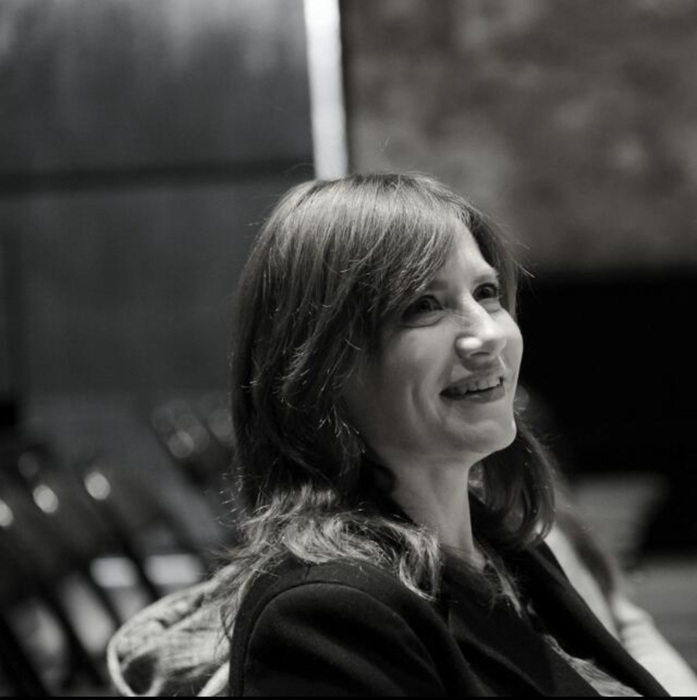Fallen French are not worth burying in German soil, the farmers in Thuringia said.
The dead were supposed to remain lying around as food for the ravens.
It was November 1813, the Battle of the Nations near Leipzig was over, and there was hatred in Germany - for Napoleon and for the defeated French.
So it was a hatred of those who had previously been subject to their long-term occupiers, but it was also a created hatred, which its creators and preachers called exactly that.
Many of them are still known today as poets or thinkers.
The poet Ernst Moritz Arndt wrote of the French in 1814 "that one cannot hate and abhor the hideous enough, that an honest German must hate and abhor them."
The war against Napoleon, later referred to as the "Wars of Liberation", was won, the French Emperor had lost his power over the German states.
But if Arndt had his way, the hatred should continue to burn: "It must be taught to the children and preached to the children's children so that they may remember the hatred and enmity." The Germans should internalize the horrors France had inflicted on them for all time to keep the hostility alive.
How could it possibly come this far?
And when did it all start?
Perhaps on October 14, 1806, the day Napoleon's troops defeated the Prussian army near Jena and Auerstedt.
Napoleon - greeted with jubilation and feared at the same time
As early as the Revolutionary Wars, the French Revolutionary Army had occupied the German areas to the left of the Rhine, cities such as Cologne and Koblenz were also formally French from 1801.
And the powerful neighbor, at whose head Napoleon had put himself in a coup in November 1799, wanted more: In 1806 France went to war against the Kingdom of Prussia - with success.
Prussia's defeat sealed Napoleon's supremacy in Germany.
The Holy Roman Empire was dissolved;
the Federation of German States had shaped European politics for centuries.
Some feared French influence from the start.
Others hoped that the gains of the French Revolution would now also reach the German states.
Did that mean the days when high birth counted as everything?
Didn't the emperor bring freedom from bondage with him from France?
When Napoleon entered Berlin three weeks later through the Brandenburg Gate, he was greeted by a cheering crowd.
Johann Wolfgang von Goethe wrote confidently of the beginning of the "turning of things".
But Prussia, the rising European power, was on the ground.
The territory shrank massively - a humiliation.
And only a few weeks after the invasion, the Berliners had to watch as the French dismantled the Quadriga from the Brandenburg Gate and brought it to Paris.
In other areas of Germany, for example in Bavaria, in the new Kingdom of Westphalia or in the Rhineland, large parts of the population were still friendly to the French and were in part able to benefit from Napoleon's policies.
Meanwhile, secret societies emerged in the Prussian bourgeoisie, often with national goals.
The hatred of the occupiers smoldered in secret, ready to start a conflagration.
The poet Arndt foamed as a hate preacher
In the winter of 1813 Napoleon returned from Russia defeated - and his enemies saw their chance.
The wars of liberation began.
Everywhere where Napoleon's troops had to withdraw, anti-French writings had a boom, some deliberately fueled by the Prussian government.
This included the appeal "To the Prussians" penned by Ernst Moritz Arndt.
Without diplomatic clauses he preached "bloody hatred of the French," which the Germans should give free rein to, because only hatred could set them free.
Most of those who, like Arndt, wanted to swear the Germans into battle, shared the same horn.
And they succeeded.
Wherever people were disappointed and dissatisfied with the Napoleonic reforms and disillusioned with the huge blood toll of his wars, hatred of the French quickly germinated and grew and spread in all classes, regardless of political convictions.
In the hospitals of the war of liberation, Germans and French had to be separated, as they even attacked each other, wounded and disarmed.
Landwehr soldiers would not pardon defeated enemies even if their officers expressly ordered them to.
Where the French withdrew, the liberated citizens attacked anyone they believed to be friends of the French and consequently traitors.
Like the writer Willibald Alexis, many Germans believed that the "embers of hatred had made the work of liberation" of Napoleon possible in the first place.
Before that, Prussia was too torn.
Hatred of Jews and French were paired
With the victory over the French, resentment was by no means a thing of the past.
Now the surviving French "reign of terror" was discussed.
The newspapers wrote about looting, rape, and the "depravity" of the French in general.
And Arndt, who was later a member of the National Assembly in Frankfurt's Paulskirche after 1848, took up his pen again.
Icon: enlarge
»Der Franzosenfresser«: The writer Ernst Moritz Arndt preached the hatred of France like no other (caricature around 1848)
Photo: Archive Gerstenberg / ullstein Bild
The French, so Arndt snorted, was "an empty, hollow, puppy, formless, and meaningless nothing, without strength, meaning, and character, a petite lackey, a stooped servant, a dressed-up monkey, a clever and clever Jew."
Hatred of the Jews and the French were intertwined.
For Arndt and his like-minded people, the German nation, for which many commoners increasingly longed for a nation-state, could only be constructed through demarcation.
At the same time, the natural scientist Lorenz Oken wrote: "If one could exterminate the French as one people from the earth without cruelty, then mankind would be doing a great service." For the historian and Scandinavian Christian Friedrich Rühs, who later especially for his hatred of Jews should become known, France was the "archenemy", the "eternal adversary".
And it actually worked a bit when Napoleon returned from exile on Elba in March 1815 and came back to power.
The rule of the hundred days dawned.
"Abominations that destroy Germany"
Christian Friedrich Rühs on French and Jews
In numerous publications, German soldiers have now been called upon to disregard orders from their officers if the French should be granted mercy.
Instead of letting go of the defeated enemies, they should also be punished by looting, humiliation and destruction.
Anyone who criticized that had to be accused of secretly always being allied with the French.
In the same breath it went against the Jews again.
Rühs wrote that the French and Jews were "horrors that corrupt Germany."
But this propaganda also repelled many Germans.
Theologians vigorously denied that hatred could be a virtue, not even against peoples.
Patriotic national magazines called for moderation.
And many thought their part.
Goethe was silent;
the writer ETA Hoffmann wrote that "barriers must be set to the ghostly goings-on of some young whirlpools".
In June 1815 Napoleon was finally defeated at Waterloo.
Now especially authors who were close to the Restoration, the restoration of the old order, turned decisively against the hatred of the French, which had served the mobilization in the course of the liberation wars and now mostly appeared together with nationalism.
This worried the German princes, because a German nation-state, the goal of many citizens, would have reduced their power.
Political murder of the "traitor" Kotzebue
August von Kotzebue wrote repeatedly against hatred of the French and Jews.
Because of his closeness to the Restoration, his rejection of a nation state and his work as the Russian consul general, the nationalists regarded the author as a traitor anyway.
He paid for his public attitude with his death: In March 1819, the fraternity member Carl Ludwig Sand stabbed him to death in his Mannheim apartment, who saw Kotzebue as a "traitor".
The assassin, not the murdered man, was then followed by the sympathy of many Germans.
There was a real sand cult around the theology student, who was sentenced to death and died on the scaffold in 1820.
The restoration representatives in all German states used the heated atmosphere as a pretext to take full action against voices critical of the government.
The hatred of the French subsided, but remained tied to the national movement.
The claim that France was the "arch enemy" of the Germans was made again in the Franco-German war before the establishment of the first German nation-state in 1871 - solemnly staged in the Hall of Mirrors at Versailles to humiliate the defeated French.
And it was also one of the popular slogans in World War I.
On the evening of March 14, 1830, Johann Wolfgang von Goethe and his confidante Johann Peter Eckermann were sitting together and talking about French literature.
You also talked about the time of the Wars of Liberation.
Eckermann confronted Goethe with criticism for not having supported the war with weapons or as a poet.
Goethe's answer was unmistakable:
“How could I have written songs of hate without hate! - And between us, I did not hate the French, although I thanked God when we got rid of them. How could I, too, to whom only culture and barbarity matter, could hate a nation that is one of the most cultured on earth and to which I owe so much of my education! "
Icon: The mirror




/cloudfront-eu-central-1.images.arcpublishing.com/prisa/4RITWNCKAZFB3I3MBXYYKH6YDI.jpg)










